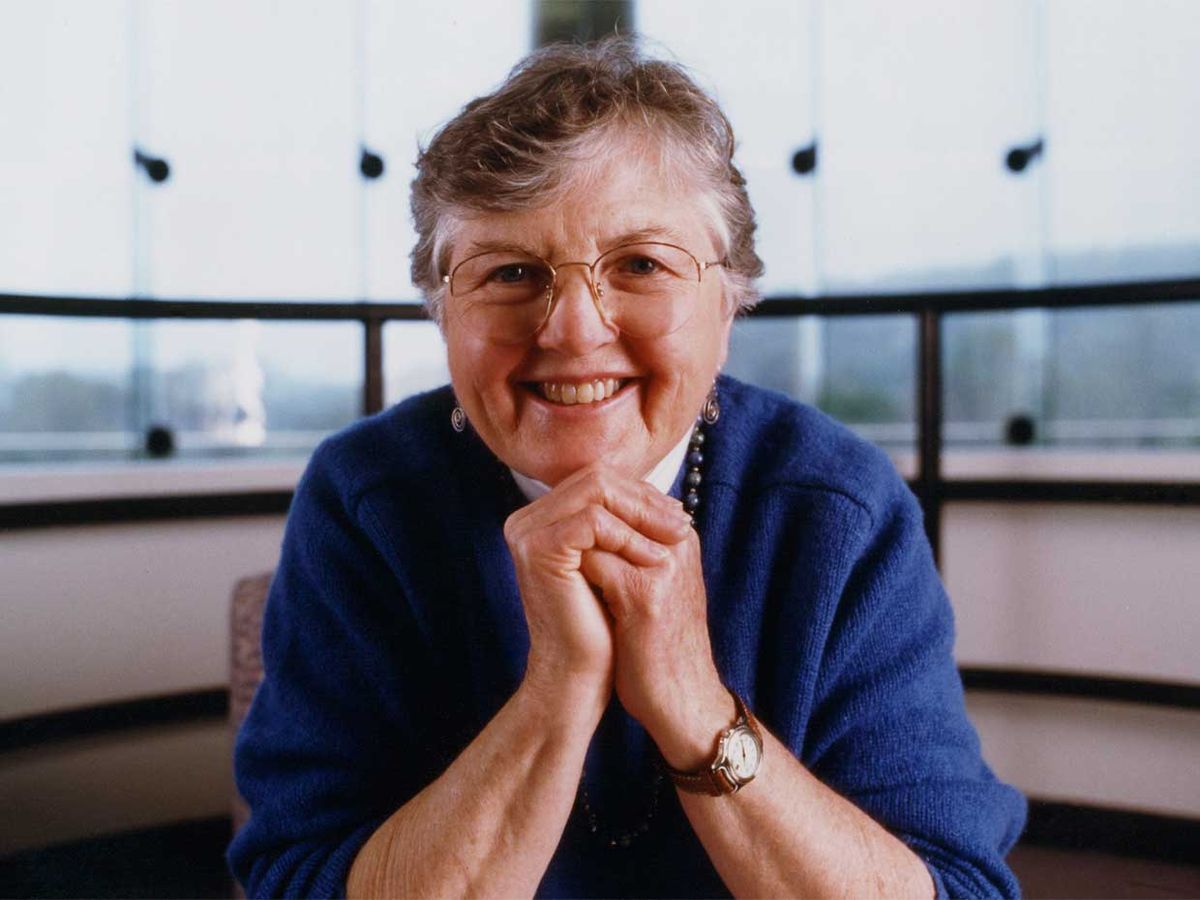THE INSTITUTE A new medal, sponsored by IBM, honors computing pioneer and IEEE Fellow Frances E. Allen, who died on 4 August.
Allen, who is also an IBM Fellow, helped design and build Alpha, a high-level code-breaking language that featured the ability to create new alphabets beyond the system-defined ones. For her contributions to computing, Allen received the Association for Computing Machinery’s A.M. Turing Award in 2006. She was the first woman to receive the honor. She is also an ACM Fellow.
“Professionally, Fran spent a lifetime working to advance the field of computing and pioneer new breakthroughs,” says Ryan McKee, a family representative of Allen’s. “She was equally focused on inspiring and motivating young people—especially women—to do the same. Fran would be honored to accept this honor in the hopes that it will celebrate and inspire young men and women to pursue the next generation of challenges.”
The Allen medal recognizes innovative work in computing that led to a lasting impact on the field of engineering, technology, or science.
The prize consists of a gold medal, a bronze replica, a certificate, and a cash prize.
Nominations for the award open in December. It is scheduled to be presented for the first time at the 2022 IEEE Honors Ceremony.
FROM TEACHER TO COMPUTING PIONEER
After receiving a bachelor’s degree in mathematics in 1954 from the New York State College for Teachers, now the State University of New York at Albany, Allen taught math at the same high school she had graduated from, in Peru, N.Y.
She decided to pursue a master’s degree in mathematics at the University of Michigan, in Ann Arbor, after two years of teaching. While there, she took a handful of basic computing classes and learned how to program an IBM 650 data-processing machine, according to her biography on the Turing Award website.
IBM recruited Allen and offered her a position in the company’s research division in Poughkeepsie, N.Y. After graduating from the University of Michigan in 1957, she began teaching the company’s researchers FORTRAN, the first high-level programming language. She planned to work at the company until she paid off her student loans, but she ended up staying at IBM for her entire 45-year career, retiring in 2002. She was the first woman to be named an IBM Fellow, the highest honor the company bestows on scientists, engineers, and programmers.
During Allen’s career, she developed a number of cutting-edge programming-language compilers.
In the early 1960s, she led a team of researchers that designed one of the first supercomputers—the Stretch Harvest—for the U.S. National Security Agency. The machine could decrypt messages using three different programming languages: FORTRAN, Autocoder, and Alpha.
She also designed and built the machine-independent, language-independent optimizing component of the Experimental Compiler for IBM’s Advanced Computing System. The code helped drive technological improvements of hardware design, and it created a new way to analyze and transform programs.
Allen wrote a seminal paper, “Program Optimization,” first published internally at IBM in 1966. It describes a robust new framework for implementing program analysis and optimization as well as a powerful set of new algorithms. “A Catalog of Optimizing Transformations,” a paper she wrote with John Cocke that was published in 1972, identified many transformations commonly used today.
“Fran Allen is a pioneering and visionary computer scientist who was a treasured mentor and friend to me and many others,” says IEEE Fellow Jeanne Ferrante, professor emerita at the University of California at San Diego. “Fran always aimed to make the world a better place, be it on a personal or professional level. It would delight her to know this award in her honor will help others gain recognition for their innovative and impactful contributions.”
To learn more about Allen’s life and career, you can read an oral history of her conducted by the IEEE History Center in 2001.
Lynn Frassetti is the senior awards presentation and communications specialist for IEEE Awards Activities.
This story was updated on 8 August 2020.
This article appears in the September 2020 print issue as “New IEEE Medal Honors Female Computing Pioneer.”



